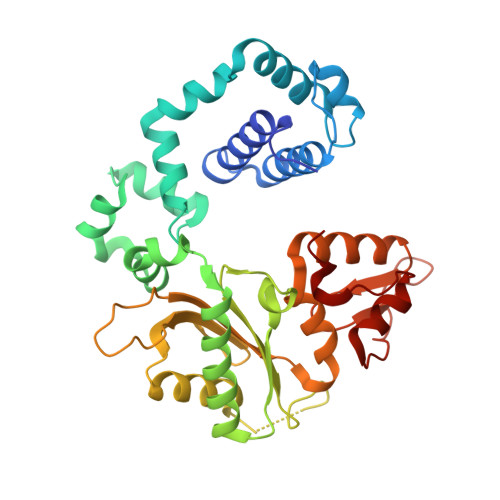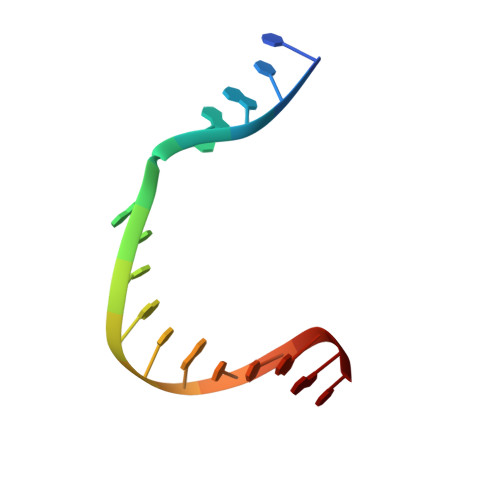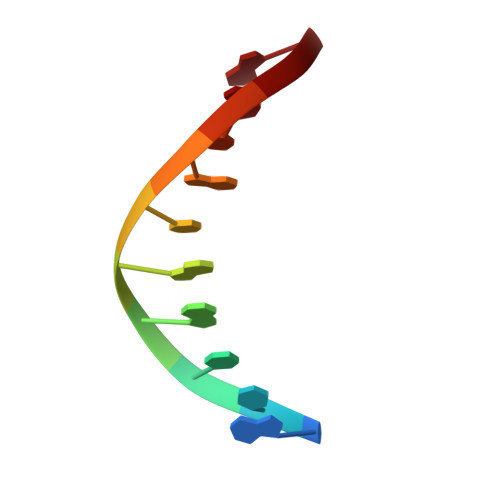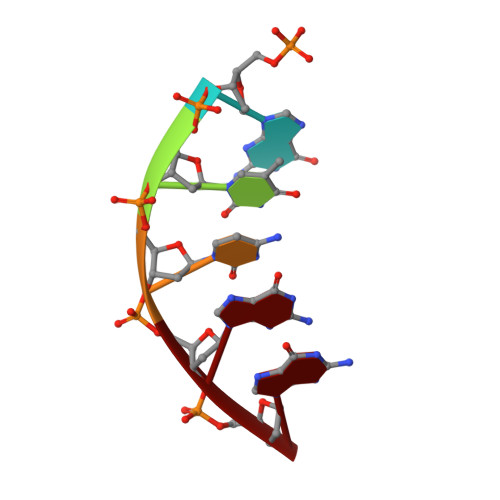Insights into the effect of minor groove interactions and metal cofactors on mutagenic replication by human DNA polymerase beta.
Koag, M.C., Lee, S.(2018) Biochem J 475: 571-585
- PubMed: 29301983
- DOI: https://doi.org/10.1042/BCJ20170787
- Primary Citation of Related Structures:
4Z6C, 4Z6D, 4Z6E, 4Z6F - PubMed Abstract:
DNA polymerases accommodate various base-pair conformations in the event of incorrect insertions. In particular, Watson-Crick-like dG:dTTP base pair has been observed at the insertion site of human DNA polymerase ¦Â (pol ¦Â). A potential factor contributing to the diverse conformations of base-pair mismatches is minor groove interactions. To gain insights into the effect of minor groove interactions on base-pair conformations, we generated an Asn279Ala pol¦Â mutant that cannot make minor groove contacts with an incoming nucleotide. We conducted structural and kinetic studies of Asn279Ala pol¦Â in complex with incoming dTTP and templating dG or O6-methyl-dG. The crystal structure of the Asn279Ala pol¦Â-G:T complex showed a wobble dG:dTTP base pair, indicating that the previously observed Watson-Crick-like dG:dTTP conformation was induced by the minor groove contact. In contrast, O6-methyl-dG, an analog of the enol tautomer of guanine, formed a Watson-Crick-like base pair with dTTP in the absence of the minor groove contact. These results suggest that the Watson-Crick-like G:T base pair at the insertion site is formed by the rare enol tautomers of G or T, whose population is increased by the minor groove hydrogen bond with Asn279. Kinetic studies showed that Asn279Ala mutation decreased dG:dTTP misincorporation rate six-fold in the presence of Mg 2+ but increased the rate three-fold in the presence of Mn 2+ , highlighting the effect of minor groove interactions and metal ions on promutagenic replication by pol¦Â.
Organizational Affiliation:
Division of Chemical Biology and Medicinal Chemistry, College of Pharmacy, The University of Texas at Austin, Austin, TX 78712, U.S.A.






















